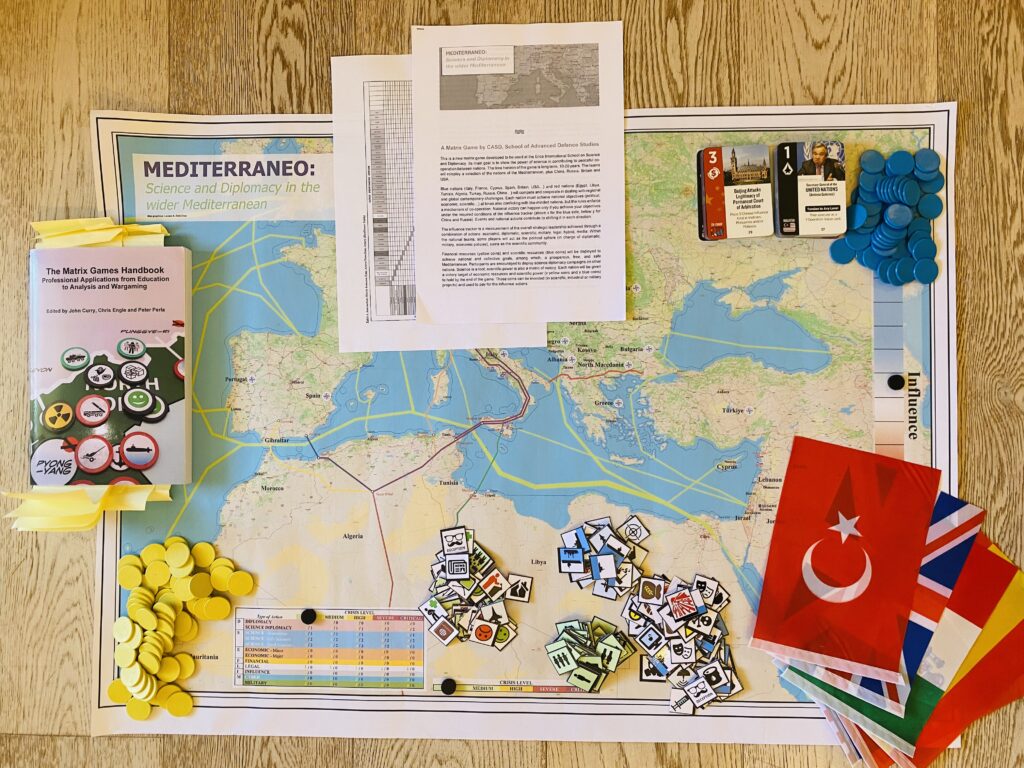WARGAMING SCIENCE & DIPLOMACY IN THE WIDER MEDITERRANEAN
This is a new matrix game developed to be used at the Erice International School on Science and Diplomacy. Its main goal is to show the power of science in contributing to peaceful co- operation between nations. The time horizon of the game is long term, 10- 20 years. The teams will roleplay a selection of the nations of the Mediterranean, plus China, Russia, Britain and USA. Blue nations (Italy, France, Cyprus, Spain, Britain, USA…) and red nations (Russia, China…) will compete and cooperate in dealing with regional and global contemporary challenges. Each nation must achieve national objectives (political, economic, scientific…) at times also conflicting with like-minded nations, but the rules enforce a mechanism of co-operation. National victory can happen only if the influence tracker in on your side (blue or red). Events and national actions contribute to shifting it in each direction. The influence tracker is a measurement of the overall strategic leadership achieved through a combination of actions: economic, diplomatic, scientific, military, legal, hybrid, media. Within the national teams, some players will act as the political sphere (in charge of diplomatic, military, economic policies), some as the scientific community. Financial resources (yellow coins) and scientific resources (blue coins) will be deployed to achieve national and collective goals, among which, a prosperous, free, and safe Mediterranean. Participants are encouraged to deploy science diplomacy campaigns on other nations. Science is a tool; scientific power is also a metric of victory. Each nation will be given a victory target of economic resources and scientific power (x yellow coins and y blue coins) to hold by the end of the game. Those coins can be invested (in scientific, industrial or military projects) and used to pay for the influence actions. The military component of the game is limited and focused on the maritime domain. Military capabilities can be used in negotiations (support in operations, protection, arms exports…) with other nations or to address domestic issues (human trafficking, protection of infrastructures…). There are learning objectives for each type of participant. Military officers will practice their strategic foresight and their negotiation skills in interacting with the civilians. They will familiarise with the most important scientific institutions and projects. Civilians, diplomats in particular, will practice their strategic foresight and their negotiation skills in interacting with the scientists. They will familiarise with the most important military issues and capabilities of the area. Scientists will practice their strategic foresight and their negotiation skills in interacting with politicians, diplomats, and the military. They will familiarise with the most important economic, diplomatic and military issues of the area.





